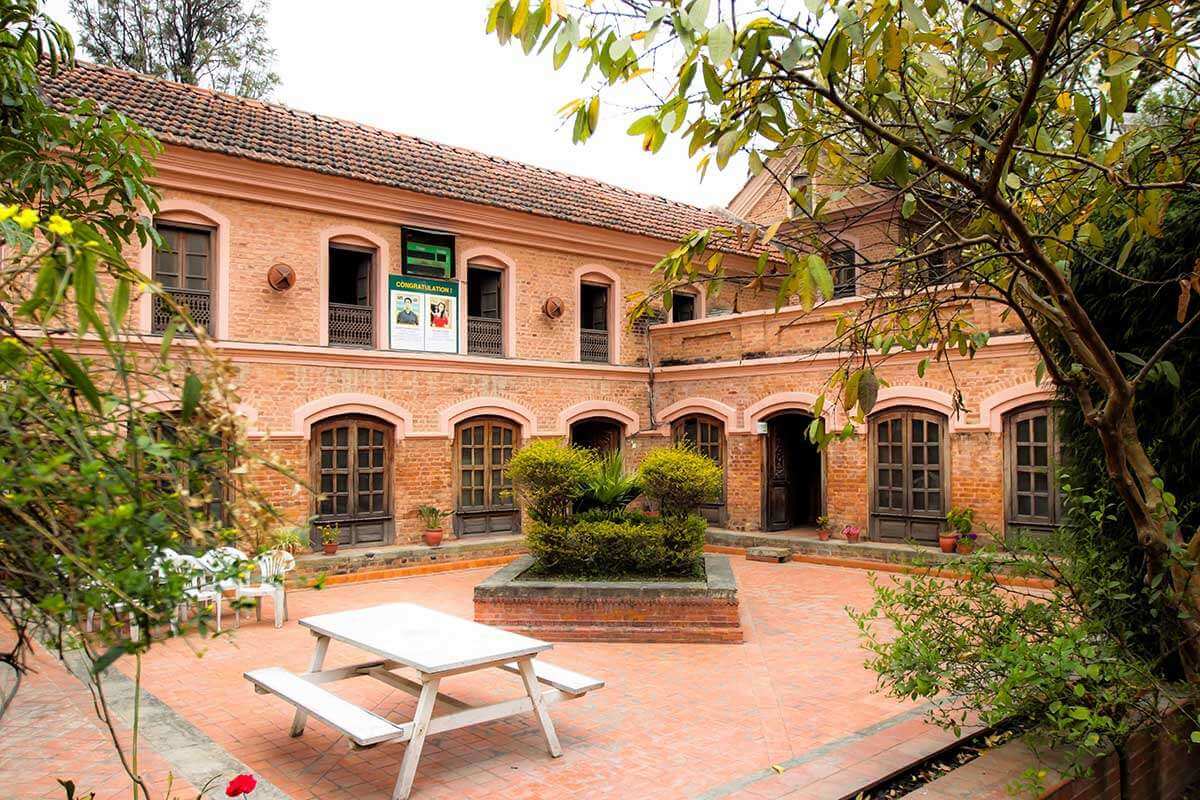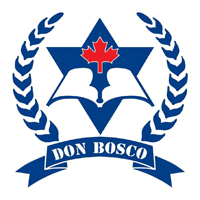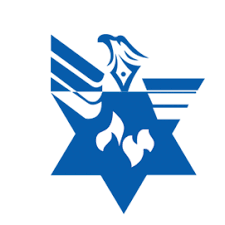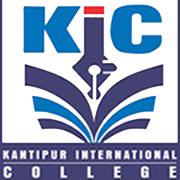Overview
Master of Business Administration (MBA) at Malpi International College, Kathmandu
Master of Business Administration (MBA) at Malpi International College (MIC), Kathmandu, is a two-year graduate management program conducted under the affiliation of Pokhara University (PU). Pokhara University is a public university established under the Pokhara University Act, 1997, recognized by the Government of Nepal for its master’s level programs in management.
The MBA at MIC follows the official Pokhara University trimester structure. Students complete six trimesters and 66 credit hours that cover foundation courses, analytical tools, core management subjects, functional specializations, seminars, a graduate research project, and an internship.
Many Nepali students look for a master’s program that is structured, recognized, and directly linked with real organizational expectations. The MBA at Malpi International College addresses that need by combining the PU-approved academic framework with an institutional setting that stresses discipline, accountability, and contact with practitioners. This page is written for students, parents, employers, and policymakers who want clear, verifiable information instead of vague claims.

Highlights
-
Affiliated to Pokhara University, Faculty of Management Studies.
-
Two-year program based on a trimester system (six trimesters).
-
Total 66 credit hours including:
-
foundation and analytical courses
-
core and functional area courses
-
capstone / integrative courses
-
concentration and elective courses
-
seminars, internship, and graduate research project
-
-
Specialization options at MIC linked to areas stated in institutional communication, such as Finance, Marketing, Human Resource Management, Business Analytics and IT, and Entrepreneurship and Innovation (subject to current official notice).
-
Teaching, evaluation, and academic rules guided by PU regulations; delivery managed within MIC’s structured campus environment at Narayan Gopal Chowk, Kathmandu.
These points help you confirm that the MBA at MIC sits within a formal national framework.
Curriculum Details
Pokhara University prescribes the core structure for its MBA trimester program. Malpi International College conducts the program in line with these regulations.
Key features of the curriculum
-
Six trimesters (approximately four months each, including examinations).
-
66 credit hours in total.
-
Combination of classroom learning, seminars, workshops, field-based tasks, internship, and graduate research.
Main curriculum components (grouped for clarity; course titles follow PU-approved documents):
-
Foundation and Analytical Courses
Students build the base needed for graduate-level management:
-
fundamentals of management and organization
-
managerial communication
-
managerial economics
-
quantitative methods and statistics
These courses strengthen analytical thinking, numerical reasoning, and clear written and spoken communication.
-
Core and Functional Management Courses
Core courses cover the main areas expected from an MBA graduate:
-
financial management
-
managerial accounting
-
marketing management
-
human resource management
-
operations and supply-related subjects
-
business environment and corporate governance
-
organizational behavior and leadership
These units help students understand how different departments function and how decisions affect performance.
-
Integrative and Strategic Courses
Higher trimesters include subjects that connect previous learning:
-
strategic management
-
entrepreneurship and new venture perspectives
-
management information systems and contemporary business issues
Students learn to look at decisions from a broader institutional and policy angle.
-
Concentration and Elective Courses
Pokhara University allows MBA students to choose concentration areas. MIC, as per its official communication, offers specialization options such as Finance, Marketing, HRM, Business Analytics and IT, and Entrepreneurship and Innovation, based on PU framework and resource availability.
You select courses that deepen expertise in your chosen field while retaining the common MBA base. -
Research, Seminar, and Internship
The PU MBA structure includes:
-
graduate research project (independent or group work with faculty supervision)
-
thematic seminars and workshops
-
internship (commonly 8 weeks) in an approved organization where students work on assigned tasks and submit evaluated reports
For students, this means progression from fundamentals to specialization, and from classroom to field-based learning, under recorded academic rules.
Objectives of the MBA at Malpi International College
The MBA at MIC, within the PU framework, aims to:
-
Provide a structured understanding of management theories and practices relevant to Nepal and international contexts.
-
Prepare graduates for responsible roles in organizations that require planning, coordination, supervision, and informed decision support.
-
Develop habits of disciplined study, punctuality, documentation, and ethical conduct in academic and professional tasks.
-
Strengthen the ASK principle (Attitude, Skills, Knowledge) in daily behavior: how students interact, meet deadlines, lead teams, and respond to supervision.
-
Encourage evidence-based thinking so graduates rely on data, regulations, and institutional policies instead of assumptions.
These objectives address the concerns of students who want clarity on what an MBA should practically contribute to their careers.
Scope for Nepali Students
The MBA from Malpi International College under Pokhara University serves students who:
-
hold a bachelor’s degree and seek advancement in managerial roles in banks, insurance companies, manufacturing firms, trading houses, IT companies, consulting firms, NGOs/INGOs, and public institutions;
-
plan to shift from technical or specialist roles into supervisory or coordination roles;
-
expect their degree to be verifiable by employers, government bodies, and foreign universities through a recognized public university framework.
Common areas where MBA graduates from a PU-affiliated college fit:
-
corporate and institutional management
-
financial services and corporate banking units
-
project and program management
-
human resource and talent management
-
marketing and business development roles
-
entrepreneurship and family business management
Expected Learning Outcomes
By completing the MBA at MIC under the PU system, a committed student is expected to:
-
explain major concepts in finance, marketing, HRM, operations, economics, and strategy;
-
analyze business situations using financial statements, market data, policy guidelines, and organizational reports;
-
prepare structured reports, proposals, and presentations suitable for management review;
-
manage and participate in teams, handle meetings, assign tasks, and track progress;
-
apply basic research methods to examine business or policy questions with clarity;
-
recognize ethical issues, conflict of interest risks, and compliance obligations within Nepali legal and regulatory frameworks;
-
use standard office, presentation, and information tools in a disciplined and secure way;
-
maintain professional behavior in communication, deadlines, and workplace interactions.
Quick self-check for graduating students
-
Can you explain a business decision and support it with numbers, references, and reasoning?
-
Can you guide a small team through a defined task from briefing to reporting?
-
Can you respond to questions from supervisors or clients without guesswork?
Skill Development Modules and Institutional Support
From an institutional perspective, Malpi International College connects the MBA classroom with:
-
interactions through advisory councils and visiting professionals from banking, capital markets, entrepreneurship, and corporate sectors;
-
seminars and workshops on leadership habits, communication, negotiations, and corporate etiquette;
-
case-based discussions linked to Nepali organizations and regulatory practices;
-
project supervision that insists on clarity in objectives, methods, documentation, and referencing;
-
access to student-led centers and networks that support research, presentations, and peer learning.
These components help you practise how managers think, work, and report in structured institutions.
Teaching Methodology
Teaching and evaluation practices follow Pokhara University guidelines for the trimester-based MBA.
Common features at MIC include:
-
instructor-led sessions combined with discussions, case illustrations, and problem-solving;
-
group assignments that mirror real departmental tasks such as market analysis, HR policy review, budget outlines, or project proposals;
-
seminar presentations where students explain issues to peers and faculty;
-
continuous internal assessment through quizzes, presentations, written assignments, and participation;
-
trimester-end examinations conducted under PU rules;
-
structured supervision for internship and graduate research project.
Admission Requirements
Admission to the MBA at Malpi International College follows Pokhara University eligibility rules and institutional procedures.
Indicative requirements (confirm for the current intake):
-
minimum 15 years of formal education (10+2 plus at least a three-year bachelor’s degree) from a recognized institution;
-
minimum CGPA or percentage as prescribed by PU for MBA entry at that time;
-
satisfactory score in the PU-approved admission test and/or MIC’s selection process, which may include written assessment, group activity, and interview;
-
submission of academic transcripts, character certificate, copy of citizenship/passport, photographs, and other required documents within deadlines.
Applicants and families should always:
-
refer to the latest official admission notice from Malpi International College;
-
cross-check eligibility conditions with Pokhara University’s current MBA regulations.
Career Opportunities
Graduates of the MBA program at Malpi International College move toward roles that require structured managerial training. Indicative roles include:
-
management trainee or officer in banks and financial institutions;
-
executive or assistant manager roles in finance, marketing, operations, HR, or administration;
-
project coordinator or program officer positions in NGOs, INGOs, and development agencies;
-
department-level roles in manufacturing, trading, tourism, healthcare, IT services, education, and consulting firms;
-
entrepreneurs or successors in family businesses who require formal management skills;
-
candidates for further research degrees (MPhil, PhD) or international programs, subject to host institution criteria.
Employers assess your track record: grades, discipline, research quality, references, and internship feedback. The degree gives a verified framework; your conduct fills it with substance.
Scholarships and Financial Aid
Scholarship and financial support for MBA students may include:
-
institutional scholarships published by Malpi International College on merit or need-based criteria;
-
Pokhara University or external scholarships where applicable under national rules.
Key points for you:
-
rely only on written, current scholarship notices from MIC and relevant authorities;
-
check conditions carefully, including CGPA thresholds, conduct requirements, and renewal rules;
-
Keep all transcripts and proofs updated for verification.
Policies change over time, so informal claims should not guide financial decisions.
Why Choose an MBA at Malpi International College?
Students who consider the MBA at MIC gain:
-
a program anchored in Pokhara University’s recognized trimester framework;
-
an environment where ASK values guide daily expectations on attendance, integrity, and participation;
-
exposure to professionals through advisory councils, guest sessions, and institutional collaborations documented by the college;
-
structured learning that connects theory with supervised projects, research, and internships;
-
a qualification that employers and academic institutions can verify against national regulations.
This course suits students who seek disciplined learning, transparent rules, and an institution-focused master’s program instead of informal or unstructured training.
Conclusion
Master of Business Administration at Malpi International College, Kathmandu, functions as a regulated, affiliation-based program of Pokhara University. The structure, curriculum, evaluation system, and internship requirements are documented and traceable through official sources. For Nepali students, parents, employers, and policymakers, this provides a clear basis to assess relevance, quality, and accountability.
Before finalizing your decision, you should:
-
review the current MBA notice and details on Malpi International College’s official platforms;
-
Verify the curriculum and regulations from Pokhara University documents.
-
Match your academic background, work experience, financial readiness, and career goals with the expectations outlined here.
Well-informed choices reduce confusion and help you use the MBA as a practical step in your professional path.
Frequently Asked Questions (FAQ)
Is the MBA at Malpi International College officially recognized?
Yes. The MBA is conducted under affiliation with Pokhara University, a public university established by national law, and follows the university’s approved curriculum and examination system.
How long is the MBA program, and how many credits are required?
The program normally runs for two years across six trimesters, with a total of 66 credit hours including coursework, seminars, internship, anda graduate research project.
Who can apply for the MBA at MIC?
Applicants need at least 15 years of formal education (10+2 plus a three-year bachelor’s degree) and must meet Pokhara University’s eligibility criteria and succeed in the prescribed admission process for the relevant intake.
Does the MBA at MIC include practical exposure?
Yes. The PU framework includes an internship and a graduate research project, and MIC supports this through placements, supervision, and professional interaction within its network.
How can applicants confirm updated information?
Applicants should contact Malpi International College directly and review its official website, then cross-check with Pokhara University’s latest MBA curriculum and notices. Only those official sources should guide admission, financial, and academic decisions.























